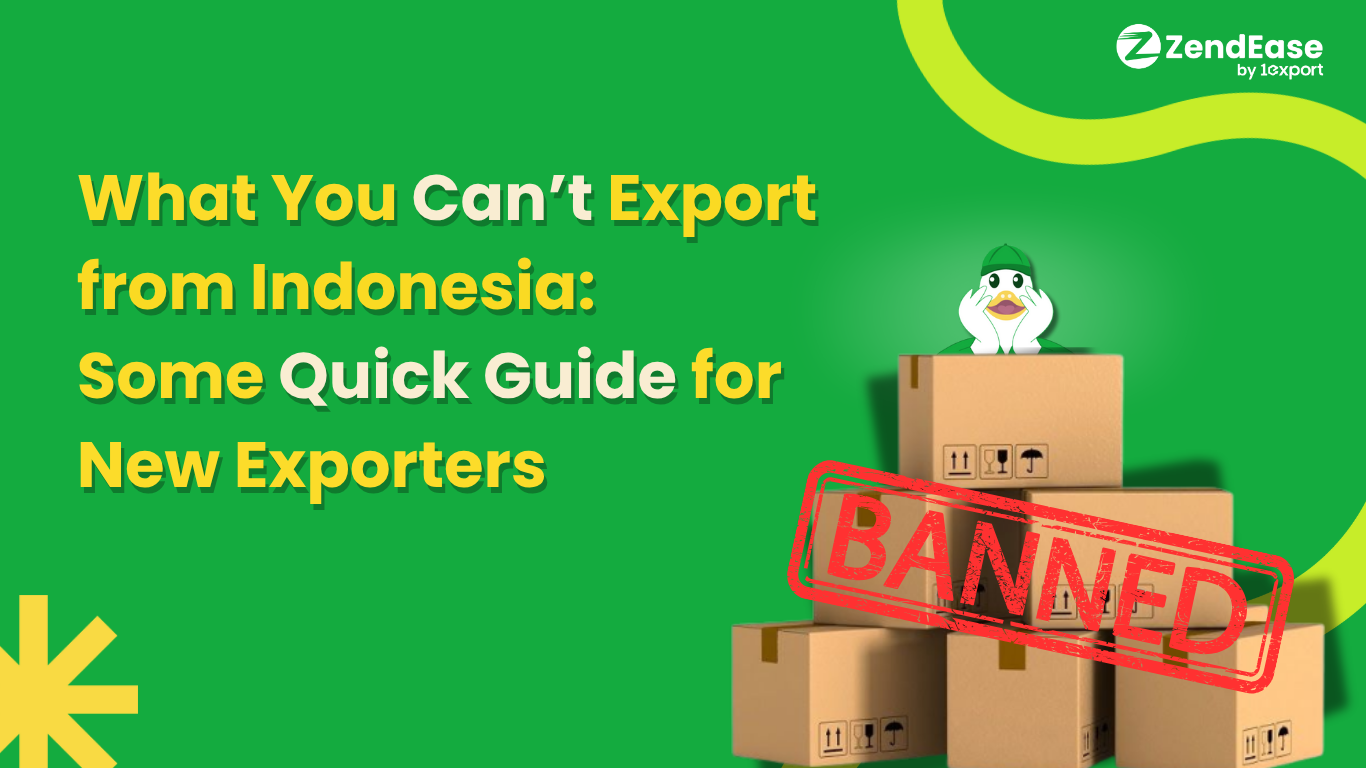What You Can’t Export from Indonesia: Some Quick Guide for New Exporters
by Zia Fadhilla Thantry Luthan on Sep 09, 2025

Starting an export business from Indonesia is an exciting prospect, especially given the country's diverse resources: coffee, handicrafts, spices, and more. However, before you pack your products and call the freight forwarder, you need to understand that not all products are allowed to leave the country. Some commodities are strictly prohibited or restricted for export, and breaking these regulations can result in severe consequences, including cargo seizures or legal penalties.
What’s Prohibited?
Some goods are completely banned from export. These are outlined in governing laws and regulations, such as:
- Cultural artifacts and antiques (Regulated under Permendag No. 50/2020) — for example: kris (keris) daggers, antique wooden sculptures, old batik fabrics over 50 years old, historical coins, temple relics, or other heritage items.
- Endangered flora and fauna (Based on CITES and Law No. 5 of 1990) — for example: ivory, tiger skins, stuffed endangered birds, orchids listed under CITES, rare corals, and live animals like cockatoos or slow lorises.
- Toxic and hazardous waste — for example: batteries, medical waste, chemical sludge, asbestos, and waste oil containing dangerous substances.
- Unprocessed natural resources (Following Law No. 3 of 2020 on Mineral and Coal Mining) — for example: raw nickel ore, unrefined bauxite, raw tin, coal, and unprocessed gold ore.
These items are protected due to their importance to national heritage, environmental conservation, or strategic economic interests.
What’s Restricted?
Other goods can be exported, but only under special permits or conditions:
- Processed food and beverages — May require both BPOM and Halal certifications if targeting Muslim markets.
- Medicinal plants and herbs — Subject to Ministry of Health regulations.
- Agricultural products — Require phytosanitary certificates and possibly quarantine inspections.
- Certain wood products — Governed by the SVLK (Timber Legality Verification System).
These restrictions are outlined in several government regulations, notably:
- Permendag No. 18/2021 — On Export Prohibited and Restricted Goods
- Regulation of the Minister of Agriculture No. 42/2012 — On Agricultural Quarantine
- National Agency of Drug and Food Control (BPOM) — Certification requirements
Before exporting any product, it’s essential to check these requirements through the Online Single Submission (OSS) system or consult with trade facilitators.
Smooth Exports with ZendEase
Navigating these rules can be challenging, especially for new exporters. That's where ZendEase comes in. ZendEase simplifies the export process for coffee blends, handicrafts, and local culinary products by providing bespoke export solutions and documentation support. ZendEase handles everything from eligibility checks to logistics and compliance, allowing you to focus on growing your business abroad while avoiding legal concerns.
So before exporting, make sure your products are compliant and your documents are in order. If you're unsure, ZendEase is ready to help you go global the right way. Start your export journey by contacting indonesia@zendease.com.